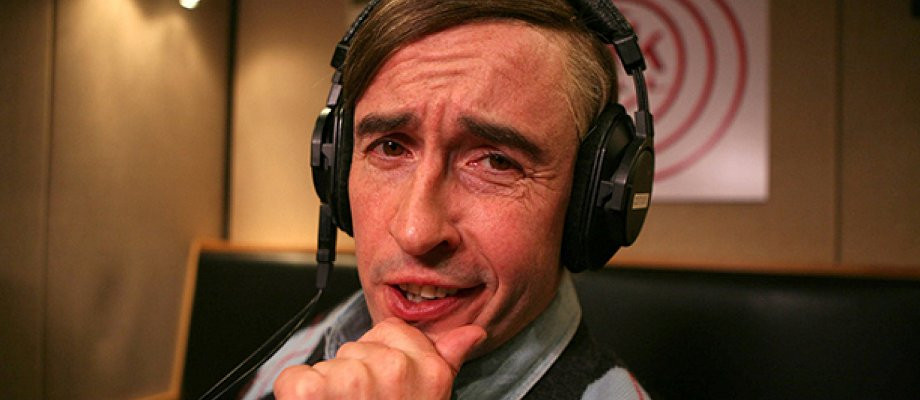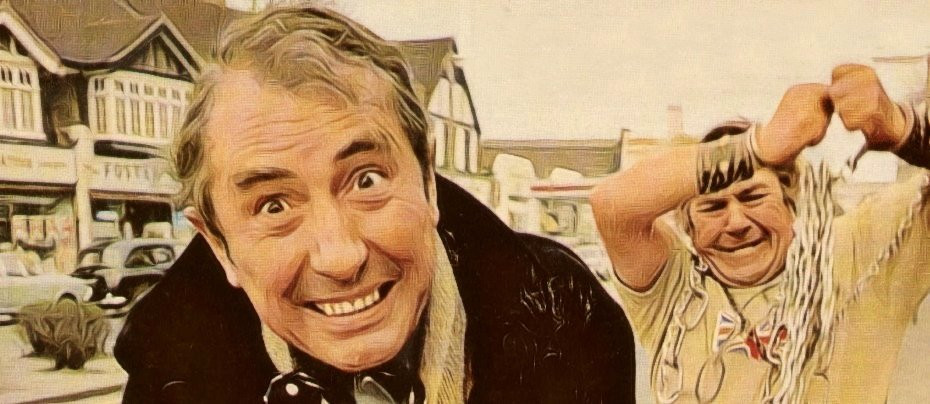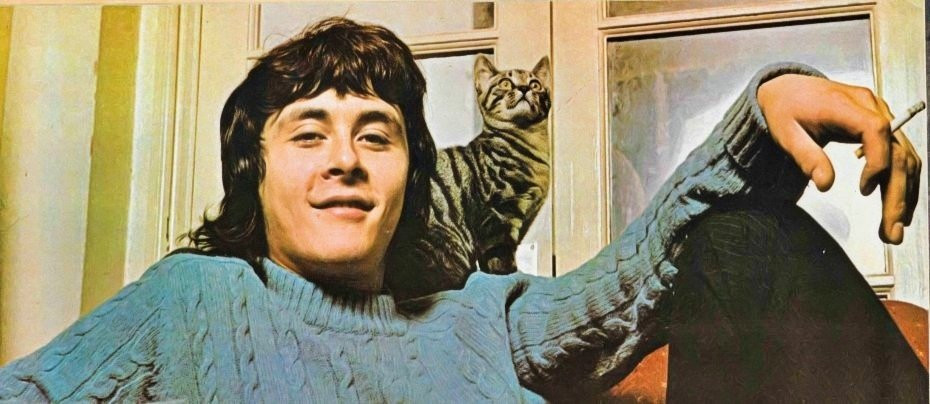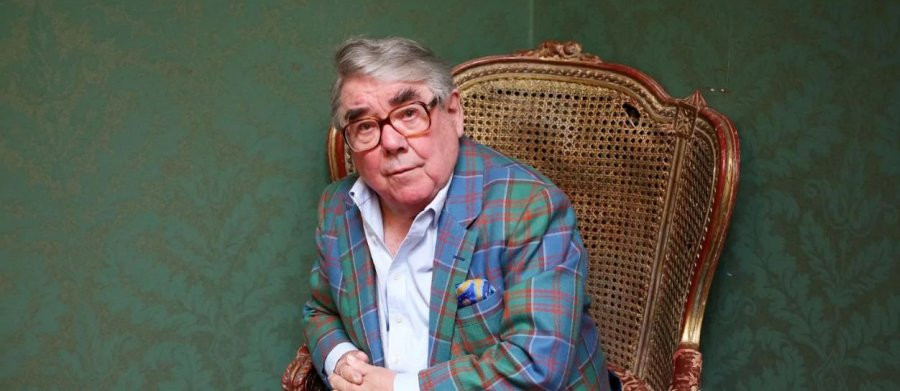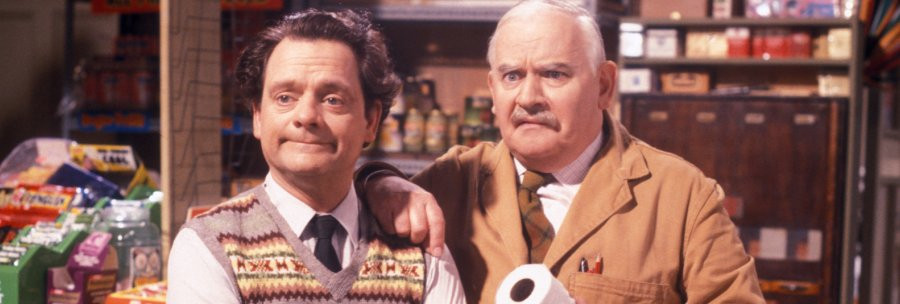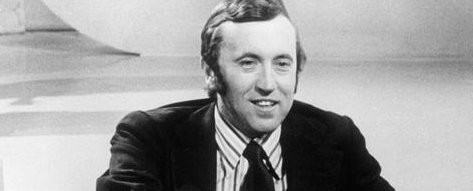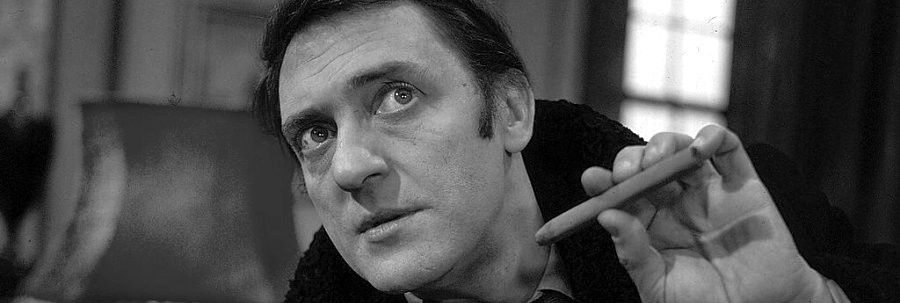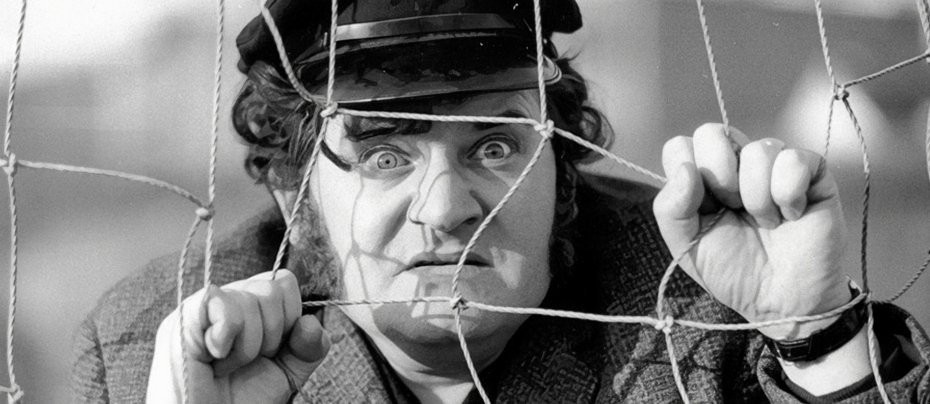
The Ronnie Barker Playhouse
1968 - United KingdomThe idea behind The Ronnie Barker Playhouse was not new to television. It wasn't even new to Barker.
With the huge success of The Frost Report, David Frost set up Paradine Productions to not only take charge of the show but to also manage the principal performers who appeared on it. He then arranged for Ronnie Corbett to star in The Corbett Follies and Barker to appear in The Ronnie Barker Playhouse.
The series would be produced by Stella Richman, who, after starting out as an actress and then moving into production had joined Associated Rediffusion in 1964 where she was appointed Head of Series. Richman was married to the actor and theatrical manager Alec Clunes (who appeared in The Incredible Mister Tanner - but more of that later) and was the mother of actor Martin Clunes. The director was Michael Lindsay-Hogg who had directed one of the 1960s most influential pop music shows, Ready Steady Go and would later work on promo films for The Beatles before being invited into the recording studios to film the footage that would be used in their Let It Be documentary. His work on the BBC series Play for Today and Play of the Week, and the drama series Brideshead Revisited were each nominated for BAFTA awards, in 1974, 1978, and 1983.
Writers for the series included Alun Owen, the Welsh playwright who had written the screenplay for A Hard Day's Night, the writing team of Johnnie Mortimer and Brian Cooke (Father Dear Father, Man about the House, George and Mildred) and Hugh Leonard, the Irish dramatist, television writer and columnist.
The idea behind The Ronnie Barker Playhouse was not new to television. It wasn't even new to Barker. Jimmy Edwards, a major radio and television star, had starred in Faces of Jim in 1961. The writers of that series, Frank Muir and Denis Norden, had utilised a tried and trusted formula of writing a series of shows in which the star would play a different character each week. Ronnie Barker had been booked to say just one line in one show. But the following week, he was invited back and given a few more lines. He returned each week as his parts were expanded more and more. When the second series was produced in 1962, Barker was billed as the co-star. So whilst the format was not unfamiliar to Ronnie Barker - the difference was that this time, at the age of 38 years, for the first time, he would be the star.
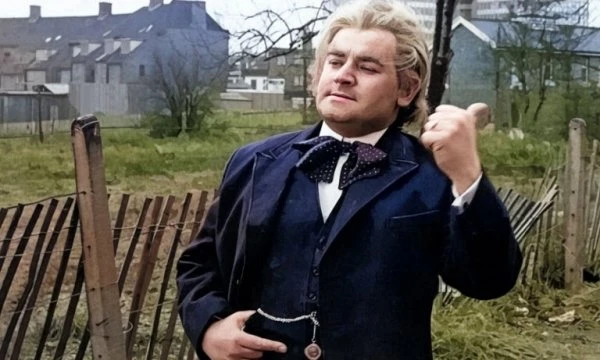
It was an opportunity for Barker to show his considerable range, and he didn't disappoint. In the first episode, Tennyson, by Alun Owen, Barker played a failed Welsh poet by the name of Tennyson Elias Williams, aka Tennyson the Tonsil, who is prevented from taking part in a recitation competition due to a misdemeanour years ago when, in a moment of aberration, he had hauled a pair of girl's panties up on the school flagpole. Out of spite for being banned, Tennyson decides to knobble the contest, only to find that it is won due to an even earlier misdemeanour in the valley twenty years ago. This was Owen's first excursion into comedy writing (he briefly appeared in Tennyson, as well) and his second was the second episode, Ah, There You Are. This episode introduced Lord Rustless, an eccentric stately home owner who is prevented from pursuing his favourite hobby of roller skating when a film crew arrive to make a television commercial. The real-life eccentric Fred Emney, whose trademark was a 'posh fat bloke' who wore a monocle, was the inspiration for Lord Rustless. The comic possibilities of the character would be explored in two subsequent spin-off series.
Reviewing Tennyson in The Stage on 10 April 1968, critic Angela Moreton remarked on the 'unceasing flow of words and wit which has to be listened to carefully to glean an over-all impression of what is actually going on. The cast and production have to match the spirit of writing or else all is lost, and in this case the harmony was complete. Ronnie Barker's performance was full of vitality, and he exploited his lines to the utmost.'
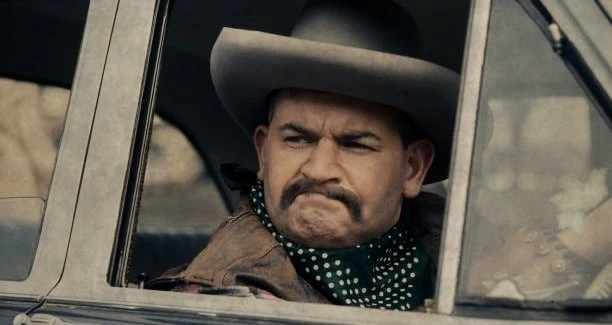
Mortimer and Cook delivered The Fastest Gun in Finchley, the third comedy in the series. Ronald Winterbourne (Barker) has a long held wish to be the chairman of the Finchley and Hendon Cowpokes Association. But it looks as though his ambition is to be thwarted yet again by the claims of a rival candidate. The only way to settle things is the Wild West way. The Fastest Gun in Finchley starred Glen Melvyn as the rival, Tupper. Melvyn and Barker had met years before at Frank H. Fortescue's Famous Players, a rep company based in Bramhall, Cheshire. Barker was an upcoming actor whilst Melvyn was a leading man. Barker would later state that Melvyn had taught him everything he ever learned about comedy, including the comedy stutter that he later used in Open All Hours. Melvyn's appearance was an acknowledgement for the debt Barker felt he owed him. Melvyn made a few more TV appearances in 1968 before retiring the following year.
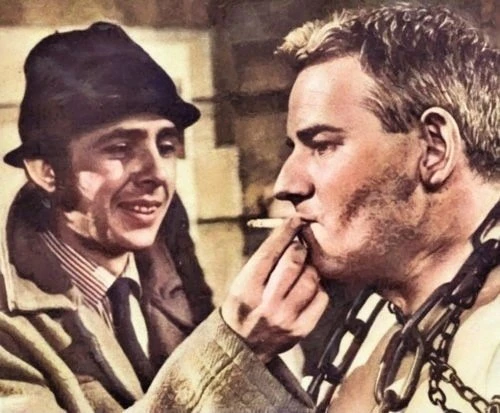
Mortimer and Cooke delivered The Incredible Mr Tanner in which Barker plays Cyril Tanner, a busking escapologist whose attempts to prove that he is as good as the late Harry Houdini always ends in abject failure. The story was deemed suitable for a spin-off series but by 1971 Barker was finding success on the BBC with Ronnie Corbett in The Two Ronnies. He therefore declined the offer to return, and it was just as well he did. Peter Butterworth (numerous Carry On films) replaced Barker and Peter Jones (The Rag Trade) replaced Richard O'Sullivan (Robin’s Nest) as his assistant. The series, Kindly Leave the Kerb, went down like a lead balloon. Which beggars the question why give it a third crack in 1981? But a third crack it got, this time with Brian Murphy and Roy Kinnear. Even those two respected professionals couldn't breathe life into this particular dead duck.
Hugh Leonard's Talk of Angels was next up in the series - a curious one this. More of an elongated sketch than a sitcom about a married couple playing host to a monk from a silent order. However, it appears to have been a hit with viewers, although no spin-off series was made, although one was suggested. "But as the monk was in a silent order and I didn't in fact say a word through the whole play," said Barker, "it would have been rather difficult to bring back and sustain."
The final comedy in the series was Alexander, again by Alun Owen. At home, Alexander (Barker) is a mother's boy. At work, the Scotsman has Casanova designs on a number of women.
Despite not being a huge success, The Ronnie Barker Playhouse was the launching-pad for a career that soon reached into the stratosphere of TV comedy. Future anthology series such as 6 Dates With Barker and Seven of One would produce some all-time TV classics. Barker captivated the British public with his impeccable timing, diverse characters, and unforgettable sketches. His wit and charm brought laughter and joy to millions, leaving a legacy of timeless humour and an enduring place in Britain's heart.
Seen this show? How do you rate it?
Seen this show? How do you rate it?
Published on November 1st, 2024. Written by Laurence Marcus for Television Heaven.


